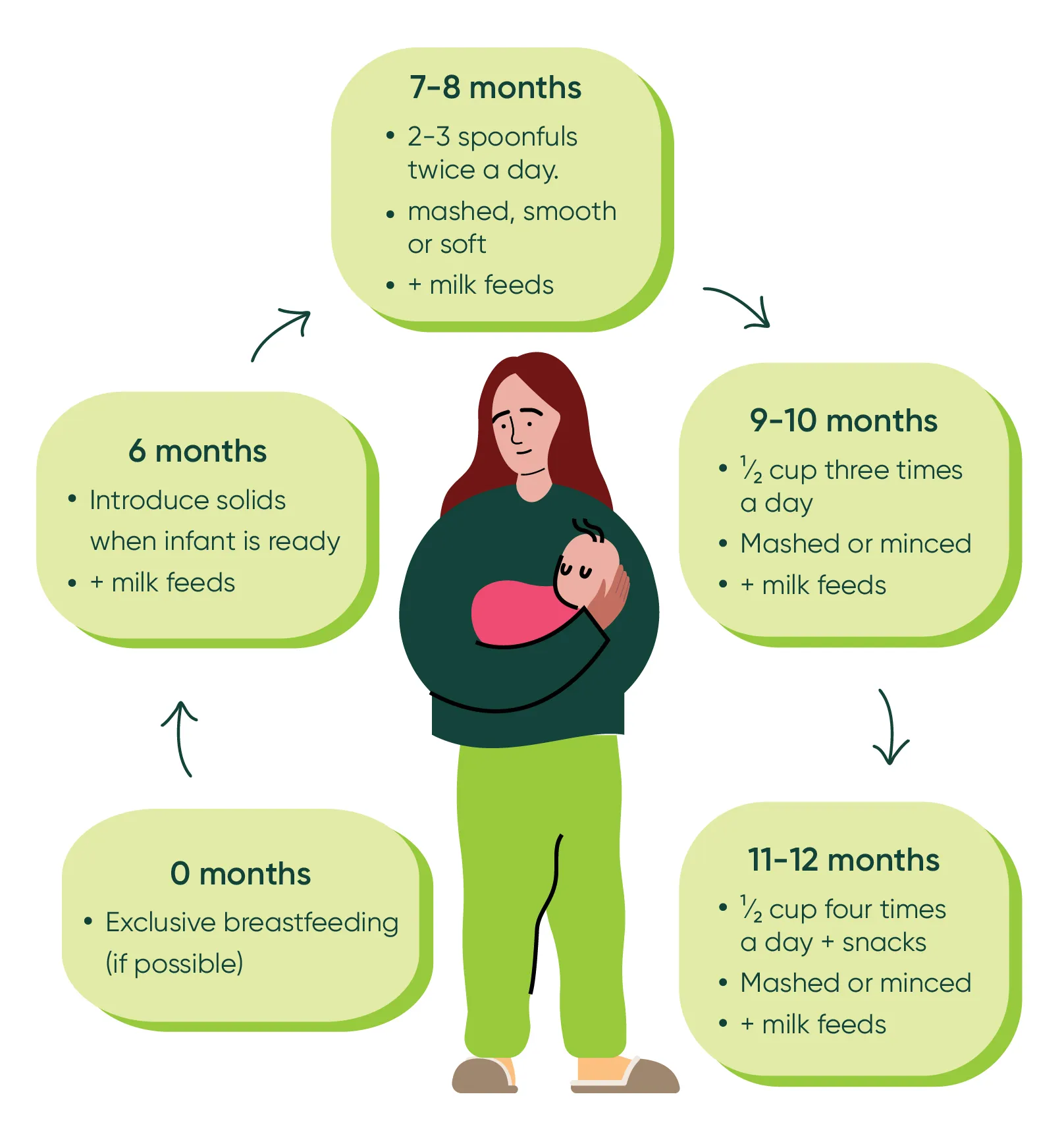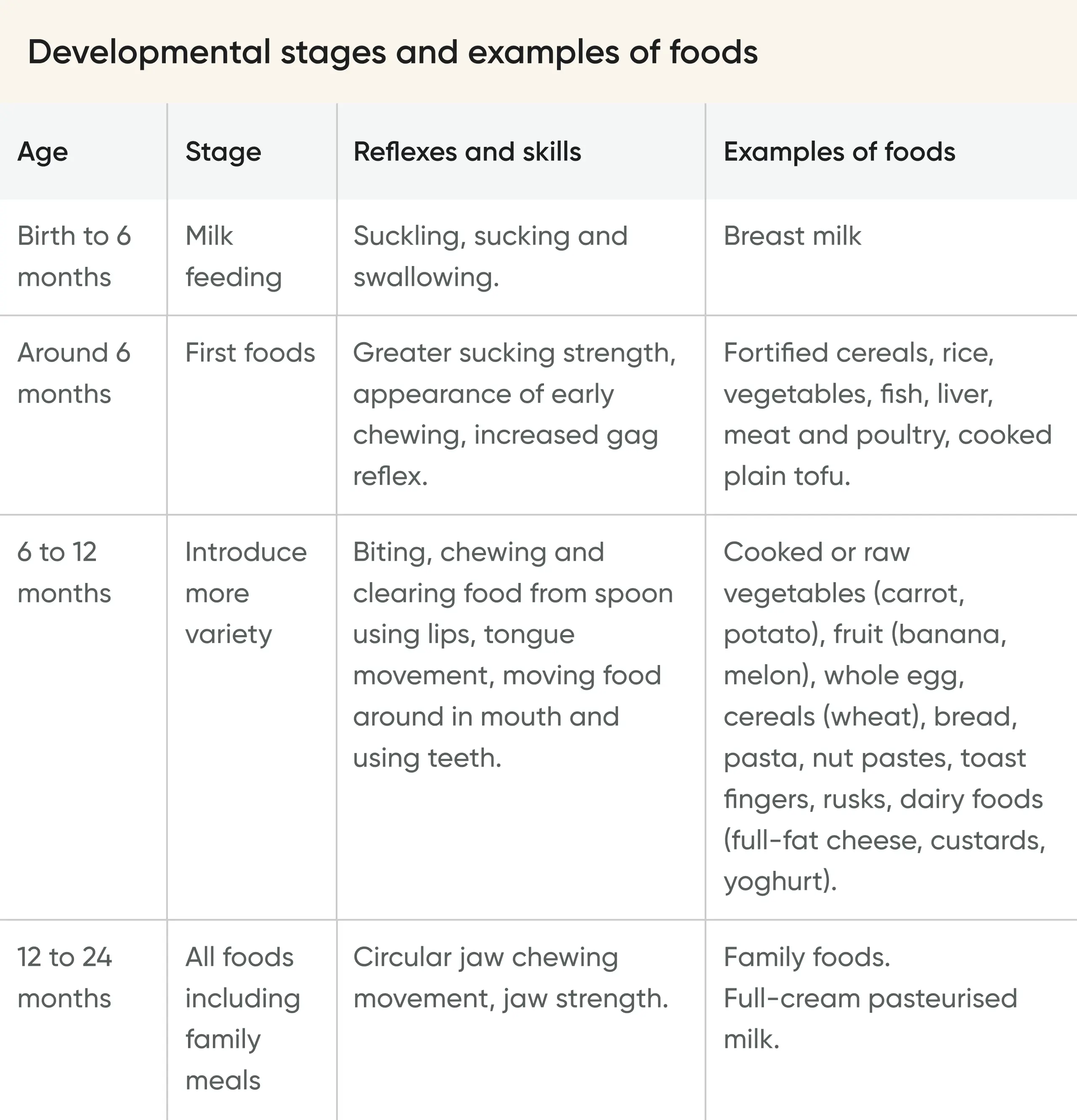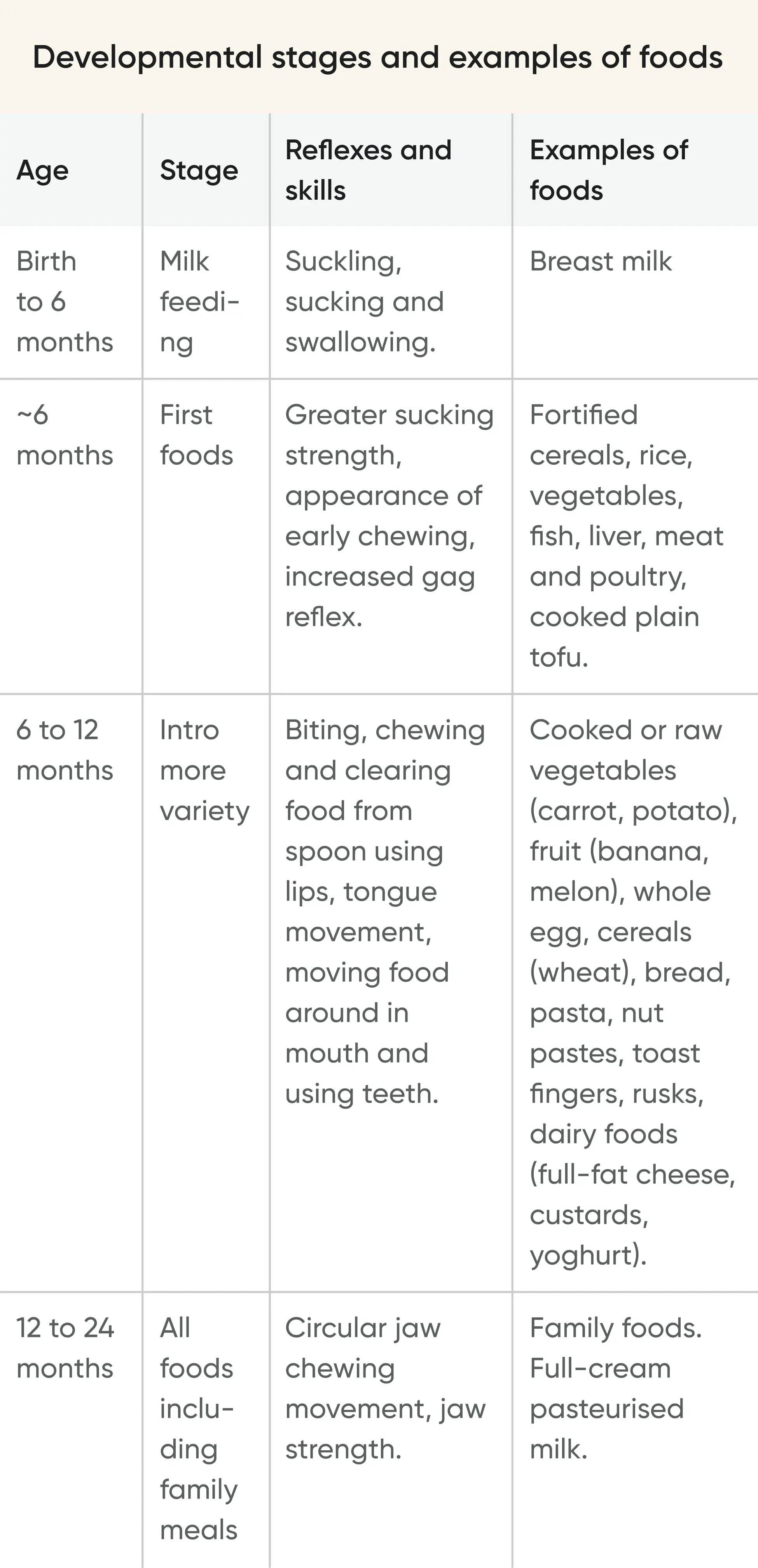For the first 6 months of a baby's life, breastmilk provides all of the nutrients they need for growth and development. Around the 6 month mark, most babies are ready to start with food; it’s a big milestone for both baby and parents. For new parents, knowing what and when to feed your baby may seem like a daunting task. Thankfully, we’ve got an easy guide on the signs to look out for and where to start.
When can you introduce solid foods to your baby?
The infant feeding guidelines recommend that babies are offered a range of foods from 6 months of age onwards to meet nutritional and development requirements. Parents should continue milk feeds, in addition to solids until 12 months (or longer if desired).
If breastfeeding is not an option, or only partial breastfeeding is possible, then a commercial infant formula may be used as an alternative to breastmilk.
Babies should be offered a range of foods from 6 months of age onwards to meet nutritional and development requirements.
Why do you have to wait to introduce solids?
- Infants have a “tongue-thrust reflex” that makes their tongue push food out when placed in the mouth. This reflex prevents them from eating solid foods before they are ready. Around 6 months, most infants start to lose this reflex which means it’s easier for them to swallow solid food.
- A young infant’s gastrointestinal system takes time to develop and may not cope well with solid foods. Once at 6 months, most infants have developed enough to be able to properly digest and break down foods.
How do you know once your baby is ready for solids?
There are three clear signs that indicate when a baby may be ready to start on solids. These include:
- They can hold their head whilst staying upright in a sitting position.
- They can pick up food and coordinate movement to the mouth by themselves.
- Not pushing food out of their mouth and instead swallowing food. An infant who pushes food out of their mouth may not be ready.
Signs that indicate when a baby may be ready to start on solids.
Which foods should you introduce?
Foods can be introduced in any order, however, there are a few other considerations to keep in mind such as:
- Being sure to include iron rich foods to assist with growth and development. Iron rich foods include fortified cereals, meat, poultry, fish, tofu and legumes.
- The variety and quantity of foods should be increased between 6 and 12 months so that at age one, they are eating a wide range of family foods. Variety means foods from each food group such as cereals, legumes, vegetables, fruit, proteins like meat and fish and dairy like yoghurt and cheese.
- Packaged purees and snacks may be helpful and convenient at times, in addition to home made meals to set the foundations. Our guide to food textures provides examples and ideas that you can make at home.
- Allergens should be included in the foods introduced before 12 months to help reduce the chance of developing allergies later in life. Get to know the main allergens and how to introduce them. If you are ever unsure, it’s important to talk to a healthcare professional for specific advice for you and baby.
- You can start to introduce sterilised water (boiled & cooled or bottled) from 6 months with the introduction of foods. A cup can also be introduced at this time.
Which foods shouldn’t you introduce?
There are a number of foods that should be avoided for infants, and with good reason. These include:
- Honey (for infants less than 12 months) as it may contain bacteria that can be harmful.
- Cow’s milk should not be given as the main drink for infants less than 12 months of age. Pasteurised cow’s milk can be used as a drink from around 12 months of age.
- Unpasteurised milk should not be used as it may contain harmful bacteria and germs.
- Whole nuts (for children less than 3 years) as they can be a choking risk.
- Plant-based milks are not nutritionally adequate for infants under 12 months of age. If used after 12 months, they need to be full-fat varieties and calcium-enriched.
- Low or reduced fat milks are not recommended in the first 2 years of life.
- Fruit juice is not recommended for infants under 12 months of age because of its high sugar content and lack of fibre.
- Tea (including herbal), coffee, or sweetened drinks should be avoided.
What to do if your baby won’t eat solids?
If a baby isn’t showing signs that they are ready to start solids or if food choices are restricted due to health reasons, it is recommended to seek advice from a healthcare professional. Ask your doctor about Maternal and Child Health Services to ensure you get personalised advice.
Related articles:
Article developed with Nutrition Australia.
Reviewed by Healthylife health experts July 2024.



